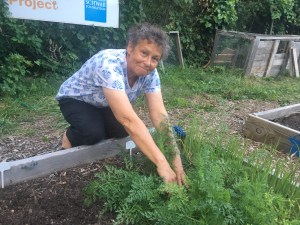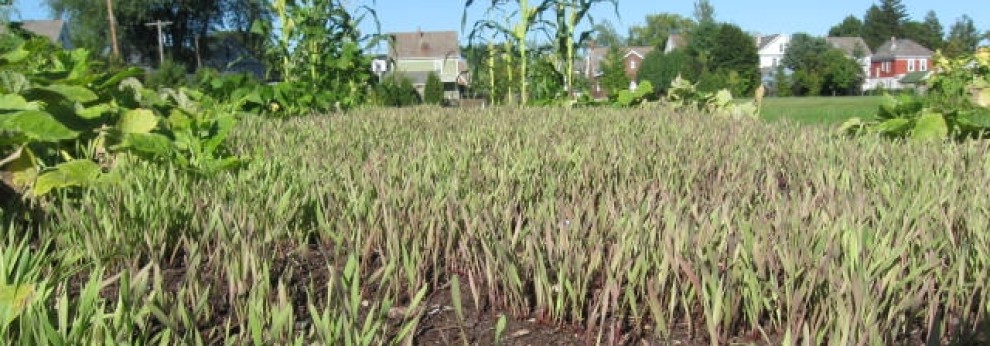 We lost a friend recently who we were just getting to know. Darby Penney, who lived a stone’s throw from our garden at Albany High School, passed away on Oct. 11. She learned of the Vegetable Project through Facebook, made a couple of financial contributions, bought seeds in one of our fundraisers and wrote some copy about particular vegetables for garden bed signs before we actually met her in May 2020.
We lost a friend recently who we were just getting to know. Darby Penney, who lived a stone’s throw from our garden at Albany High School, passed away on Oct. 11. She learned of the Vegetable Project through Facebook, made a couple of financial contributions, bought seeds in one of our fundraisers and wrote some copy about particular vegetables for garden bed signs before we actually met her in May 2020.
And then she pulled weeds, planted seeds and generally helped out in our Albany High and Myers Middle School gardens over the following year and a couple of months. She lamented at times that chemotherapy treatment she was receiving seemed to create a “brain fog.” She appeared reasonably robust at other times. But she always said that she enjoyed spending time at the garden and visiting with our volunteers.
It was always a pleasure to see and chat with Darby. She was thoughtful, opinionated, interested in what we were doing, interested in events around the world and interesting herself. She said she had done some work in the mental health field. Sadly, however, we missed opportunities to ask her enough questions to learn what that meant, let alone about her remarkable life. And thus, we missed all opportunities to learn from Darby’s remarkable life. So maybe the best we can say is that we’re grateful for the chance to meet someone who felt like a kindred spirit from the first moment. And that we will always try to do better at getting to know the people we cross paths with.
The New York Times, under the headline the other day, “Darby Penney, prominent crusader for better psychiatric care, dies at 68,” described work on behalf of marginalized people, people who were involuntarily committed to psychiatric institutions, that began with the discovery of belongings of deceased patients at the Willard Psychiatric Center in the Finger Lakes region of New York. Working with medical records and suitcases full of clothing, photographs, papers and other personal items, Darby, then employed by the state Office of Mental Health, pieced together identities of people buried in unmarked graves at what was originally known as Willard Asylum for the Chronic Insane. From there, she embarked on years of advocacy for people in places like Willard.
“Darby felt that being in the system wasn’t always the best place for a patient to be,” the Times obituary quoted a friend saying. “That can be a place where they’re not listened to and are just told to take their meds.” We will never know, but maybe Darby saw a parallel when we explained that the Vegetable Project was driven by the thought that there must be a better way to engage disaffected students than to utter the refrain they hear so often: “Sit down and be quiet and look up at the front of the room.”
Condolences to Darby’s family and friends who knew her much longer than we did. And thanks, Darby, for caring about the dignity of people at the margins of our communities.
–Bill Stoneman



One response to “Opportunity to learn from a meaningful life”